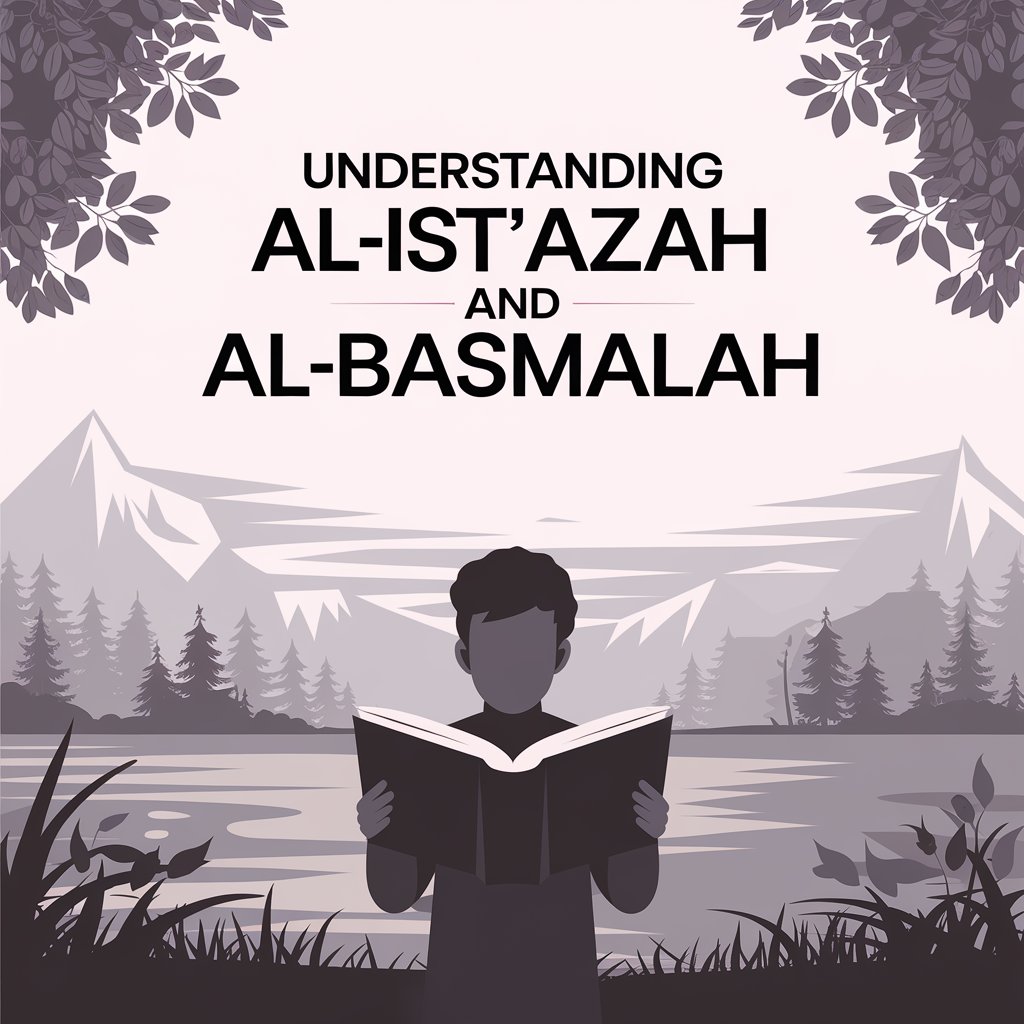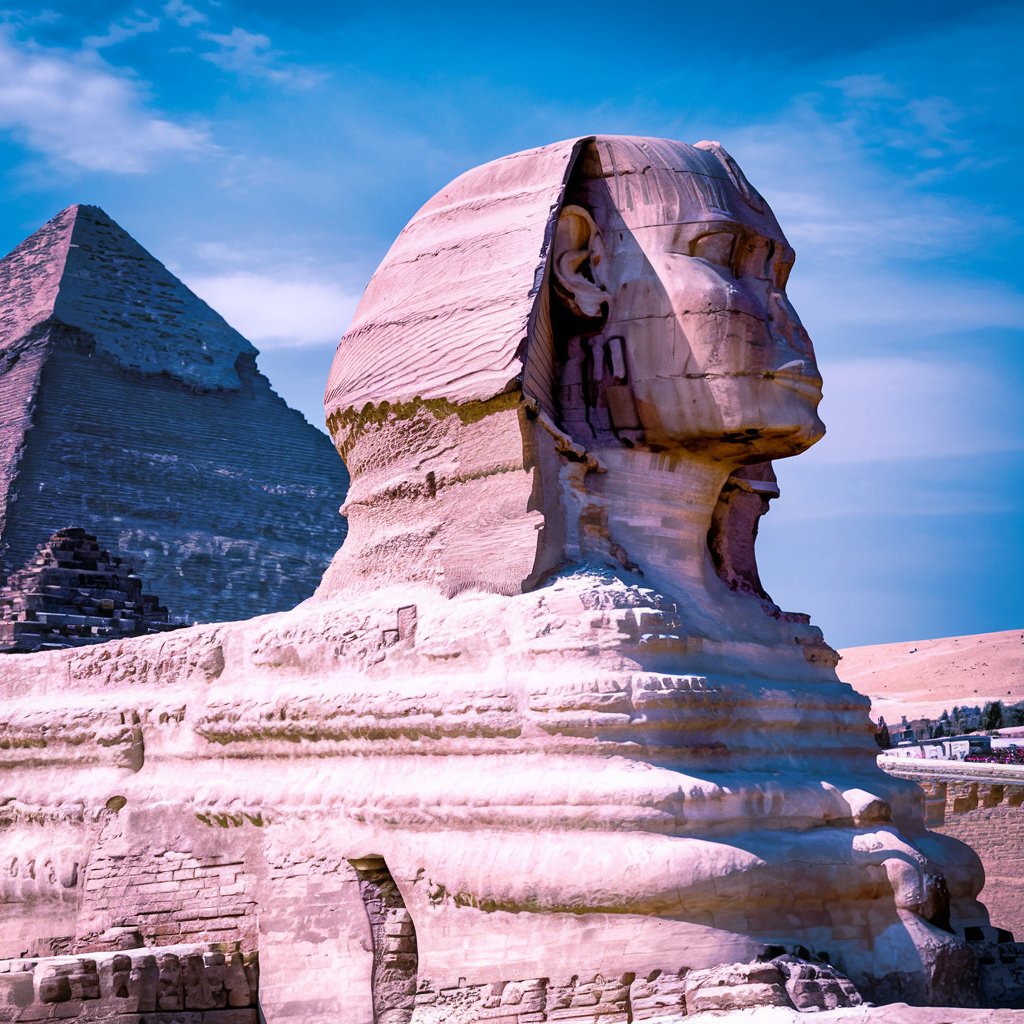
The opening of the Quranic recitation holds a special place in the study of Tajweed, as Al-Isti'azah (seeking refuge) and Al-Basmalah (beginning with "In the name of Allah") serve as essential prefaces. Al-Isti'azah is a key that symbolically opens the doors of the Quran, and Al-Basmalah precedes nearly every surah, marking the start of the recitation. Both are essential practices, and mastering them enables one to approach the Quran with the respect and protection it deserves.
By the end of this lesson, students should be able to:
Al-Isti'azah (أعوذ بالله من الشيطان الرجيم) translates to "I seek refuge with Allah from the accursed Shaytan." It is a declaration of protection, recited to guard oneself against distractions and the whispers of Shaytan.
Al-Basmalah (بِسْمِ ٱللَّهِ ٱلرَّحْمَٰنِ ٱلرَّحِيمِ) means "In the name of Allah, the Most Gracious, the Most Merciful." This phrase begins almost every surah and aligns the heart with the remembrance of Allah before recitation.
Ruling on Al-Isti'azah: It is recommended (mustahab) according to most scholars, whether reading from the beginning of a surah or the middle, but it is not recommended between two surahs. This follows the command in Surah An-Nahl (Q16:98): "So when you read the Quran, seek refuge with Allah from Shaytan the outcast."
Ruling on Al-Basmalah: Al-Basmalah is obligatory at the beginning of all surahs except Surat Tawbah. When reciting from the middle of a surah, it is optional but encouraged to begin with Al-Basmalah.
The basic and common form is:
أعوذ بالله من الشيطان الرجيم
However, it’s permissible to include any of Allah’s attributes after the word "بالله", as in:
This flexibility is supported by a Hadith reported by Abu Dawud: Abu Sa’id Al-Khudri narrated that whenever the Prophet ﷺ would wake up at night, he would say, “I seek refuge with Allah, the All-Hearing, the All-Knowing, from the accursed Shaytan, from his whispering, his puffing, and his spitting.”
Imam Shatibi also said in his famous poem (96th line) Hirzul Amany: "And if you add (an attribute) to the glorification of your Lord, you are not ignorant."
Note: The Basmalah has only one form: بسم الله الرحمن الرحيم
The Modes are of two types 1
Loud Mode: Recommended during gatherings or for learning purposes.
Silent Mode: Recommended during Salat and private recitation.
There are four permissible ways to begin recitation
Note: (* means STOP)
All Separated
1) (ٱلۡحَمۡدُ لِلَّهِ رَبِّ ٱلۡعَٰلَمِينَ)*(بِسۡمِ ٱللَّهِ ٱلرَّحۡمَٰنِ ٱلرَّحِيمِ)*(أَعُوذُ بِٱللَّهِ مِنَ ٱلشَّيۡطَٰنِ ٱلرَّجِيمِ)
Al-Isti'azah Separated, Al-Basmalah and Beginning of Surah Combined
2) (بِسۡمِ ٱللَّهِ ٱلرَّحۡمَٰنِ ٱلرَّحِيمِ ٱلۡحَمۡدُ لِلَّهِ رَبِّ ٱلۡعَٰلَمِينَ)*(أَعُوذُ بِٱللَّهِ مِنَ ٱلشَّيۡطَٰنِ ٱلرَّجِيمِ)
Al-Isti'azah and Al-Basmalah Combined, Beginning of Surah Separated
3) (ٱلۡحَمۡدُ لِلَّهِ رَبِّ ٱلۡعَٰلَمِينَ)*(أَعُوذُ بِٱللَّهِ مِنَ ٱلشَّيۡطَٰنِ ٱلرَّجِيمِ بِسۡمِ ٱللَّهِ ٱلرَّحۡمَٰنِ ٱلرَّحِيمِ)
All Combined
4) (أَعُوذُ بِٱللَّهِ مِنَ ٱلشَّيۡطَٰنِ ٱلرَّجِيمِ بِسۡمِ ٱللَّهِ ٱلرَّحۡمَٰنِ ٱلرَّحِيمِ ٱلۡحَمۡدُ لِلَّهِ رَبِّ ٱلۡعَٰلَمِينَ)
When moving from one surah to another, there are four methods, three of which are permissible:
All Separated
1) (قُلۡ أَعُوذُ بِرَبِّ ٱلۡفَلَقِ) * (بِسۡمِ ٱللَّهِ ٱلرَّحۡمَٰنِ ٱلرَّحِيمِ) * (وَلَمۡ يَكُن لَّهُۥ كُفُوًا أَحَدُۢ)
Al-Basmalah and the Beginning of the Next Surah Combined
2) (بِسۡمِ ٱللَّهِ ٱلرَّحۡمَٰنِ ٱلرَّحِيمِ قُلۡ أَعُوذُ بِرَبِّ ٱلۡفَلَقِ) * (وَلَمۡ يَكُن لَّهُۥ كُفُوًا أَحَدُۢ)
All Combined
3) (وَلَمۡ يَكُن لَّهُۥ كُفُوًا أَحَدُۢ بِسۡمِ ٱللَّهِ ٱلرَّحۡمَٰنِ ٱلرَّحِيمِ قُلۡ أَعُوذُ بِرَبِّ ٱلۡفَلَقِ)
Forbidden way
4) (قُلۡ أَعُوذُ بِرَبِّ ٱلۡفَلَقِ) * (وَلَمۡ يَكُن لَّهُۥ كُفُوًا أَحَدُۢ بِسۡمِ ٱللَّهِ ٱلرَّحۡمَٰنِ)
Note: It is forbidden to combine the end of the first surah and Al-Basmalah while pausing before the second surah, as it gives a false impression that Al-Basmalah is part of the first surah.
Mastering Al-Isti'azah and Al-Basmalah prepares one for a mindful approach to Quranic recitation. Understanding these details of Tajweed strengthens the connection to the Quran, opening the door to a profound recitation experience.
1) Ithaf fudalahil bashar by Ahmad Abdulganiyy Albannah page 29.
Author: Abdulmateen Abdulaziz





Masha Allah, the recourses found on this website are top notch, easy to understand, laid out very well and amazing for anyone trying to learn the sciences of Tajweed .
May Allah make us and anyone that signs up benefit from the knowledge found on this platform and means of guidance for us to get closer to Allah. AMEEN
Allahumma aameen
Jazakallahu khaeran my brother, thanks for your beautiful words of encouragement. Baarakallahu fiik